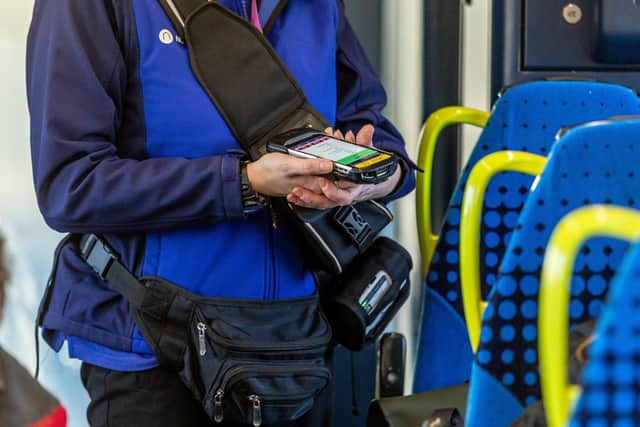Train passengers warned 'popular excuse' for not showing a ticket does not work
According to the operator, its conductors “have no choice” but to ignore the “increasingly popular excuse”, as they cannot tell if a passenger has actually bought a ticket.
Northern said people can charge their phone by using the 11,800 plugs and 17,200 USB sockets that were installed on its trains over the last 12 months.
Advertisement
Hide AdAdvertisement
Hide AdThe warning was issued when the state-run train operator announced it is renting out BattPoint power packs at various stations. They cost 99p for the first ten minutes or £3.99 for the day.


It comes as Northern is also working to make improvements for passengers who have endured significant disruption in recent months.
The latest ORR figures show just half the operator’s trains ran on time between October and December 2022 and it cancelled around one in 20 services.
It has offered a number of excuses for the disruption, blaming high levels of staff sickness, a series of strikes and an industrial dispute which has stopped drivers from volunteering to work overtime and cover for absent colleagues or train new recruits.
Advertisement
Hide AdAdvertisement
Hide AdMark Powles, Commercial Director at Northern, said: “Customers not only have a duty to buy a ticket before they board one of our trains – but also to be able to present it for inspection.
“We were fascinated by research from BattPoint which suggests 50 per cent of smartphone and tablet users run out of battery at least once a day and 96 per cent carry no form of backup power with them.”
He added: “Through this trial, and the roll out of nearly 30,000 plugs and USB sockets on our trains, we’re doing our bit to make sure no-one finds themselves out of juice when they hear the words: ‘Tickets please’.”
Northern, which was taken over by the government-controlled Operator of Last Resort (OLR) three years ago, is the second largest train operator in the UK. It runs almost 2,500 services a day to more than 500 stations across the North of England.